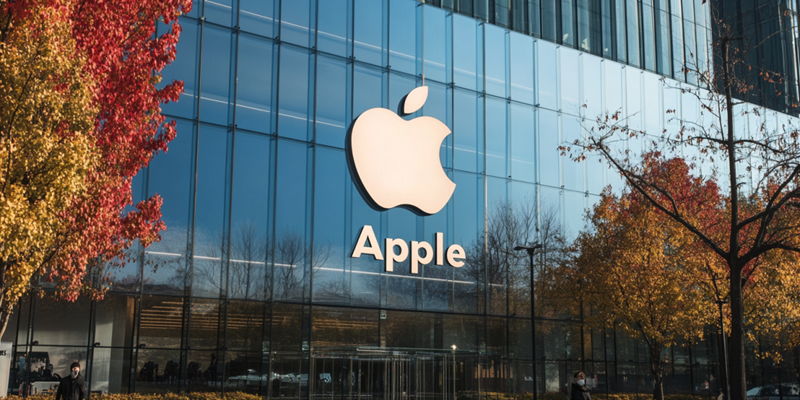Apple Inc. has recently made headlines by choosing to withdraw its lawsuit against the Israeli company NSO Group, developer of the notorious Pegasus spyware. The move took many by surprise, particularly given Apple’s previously aggressive stance against the group. The lawsuit, originally filed in November 2021, sought to prohibit NSO Group from using any Apple software, services, or devices as a way to combat unlawful surveillance. Nevertheless, Apple retracted this legal action, citing significant risks to its threat intelligence program that outweighed the potential benefits of continuing the court case. This strategic decision is emblematic of the larger, multifaceted battle against modern spyware threats.
Strategic Decision-Making in Apple’s Cybersecurity Approach
The evolving legal and cybersecurity landscape prompted Apple to reassess its risk management strategies surrounding the lawsuit against NSO Group. Initially, Apple pursued legal action to stop NSO Group from using its technology for unlawful surveillance, specifically targeting Apple users with the Pegasus spyware. This offensive strategy aimed at protecting user privacy and security, demonstrating Apple’s commitment to safeguarding its ecosystem.
However, as the lawsuit progressed, Apple began to see a different set of risks. The discovery phase of such legal procedures could inadvertently expose Apple’s proprietary anti-vulnerability exploit strategies and threat intelligence capabilities. This exposure posed a significant risk, not only to the company’s closely guarded information but also by potentially emboldening other spyware vendors to intensify their efforts, thereby increasing the threat landscape for Apple’s products and users.
The modern cybersecurity environment’s complexity further influenced Apple’s decision. Today’s spyware threats are not confined to a single entity but involve numerous actors contributing to the broader ecosystem. The once concentrated threat from NSO Group has now dispersed among many competitors, rendering the effectiveness of isolating NSO Group alone less impactful in the grand scheme. As such, Apple’s strategic pivot reflects an understanding that mitigating spyware threats requires a broader, more adaptable approach.
Global Mobilization Against Spyware Vendors
Apple’s decision to drop the lawsuit aligns with a larger trend of international efforts to combat spyware vendors, demonstrating the company’s alignment with global anti-spyware initiatives. Across the globe, private companies and governments have ramped up their efforts against commercial spyware, illuminating the international scale and severity of these threats. An illustrative example of this mobilization is a report from the Atlantic Council’s Cyber Statecraft Initiative, which highlights the existence of 435 spyware developers across 42 countries.
The international stance against unlawful surveillance technologies is further underscored by legal actions from other tech giants such as Meta and Google. Meta’s lawsuit against NSO Group in 2019, regarding the use of WhatsApp for cyber espionage, serves as a prime example of the coordinated industry efforts to curb such threats. These collaborative actions accentuate the necessity for a unified approach in facing the cybersecurity challenges posed by sophisticated spyware.
In addition to legal battles, nations have implemented various administrative measures aimed at curtailing the spread of spyware technologies. These measures include imposing visa restrictions to limit the movement and influence of those behind spyware proliferation. Such collective efforts have gradually weakened the operations of formidable entities like NSO Group. However, the threat remains pervasive due to the sustained activities of smaller, yet influential, spyware vendors across the globe.
Apple’s Contribution to Anti-Spyware Initiatives
Even though Apple has chosen to withdraw its lawsuit, the company continues to play an active role in the fight against spyware, emphasizing its commitment to global cybersecurity. Apple has contributed a substantial $10 million to support cyber surveillance researchers and advocates, underscoring their dedication to combating spyware threats through financial support and resource allocation.
Moreover, Apple has committed to the Pall Mall Process, an international accord involving 24 nation-states dedicated to countering spyware and protecting human rights in cyberspace. This initiative, which also has the backing of industry giants such as Meta and Google, reflects a collective resolve within the tech industry to tackle these immense challenges. Through these multi-faceted initiatives, Apple demonstrates a shift from focusing on individual legal battles to embracing a more extensive, collaborative approach against the spyware issue.
This proactive participation in global efforts symbolizes Apple’s broader strategy to address the spyware threat on multiple fronts. By aligning with international coalitions and supporting cybersecurity research, Apple reinforces its position in the larger battle against cyber espionage. These actions exhibit Apple’s continued dedication to safeguarding cyberspace while adapting to the complexities and evolution of modern spyware threats.
Challenges and Complexities in Cybersecurity Legal Battles
Apple Inc. has recently drawn attention by deciding to withdraw its lawsuit against the Israeli company NSO Group, known for developing the infamous Pegasus spyware. This decision came as a surprise, especially given Apple’s earlier, more aggressive posture against the spyware developer. Originally filed in November 2021, the lawsuit aimed to bar NSO Group from using any of Apple’s software, services, or devices, as a means to curb unlawful surveillance activities related to Pegasus. However, Apple chose to retract the legal action, citing substantial risks to its threat intelligence program. This pivot suggests that the potential dangers to Apple’s intelligence efforts outweighed the benefits of continuing the litigation. This strategic move by Apple highlights the complex and ongoing battle against modern spyware threats. By stepping back from the courtroom, Apple seems to be focusing on protecting its own technological infrastructure and users in a broader, more comprehensive manner, rather than engaging in prolonged legal proceedings.

